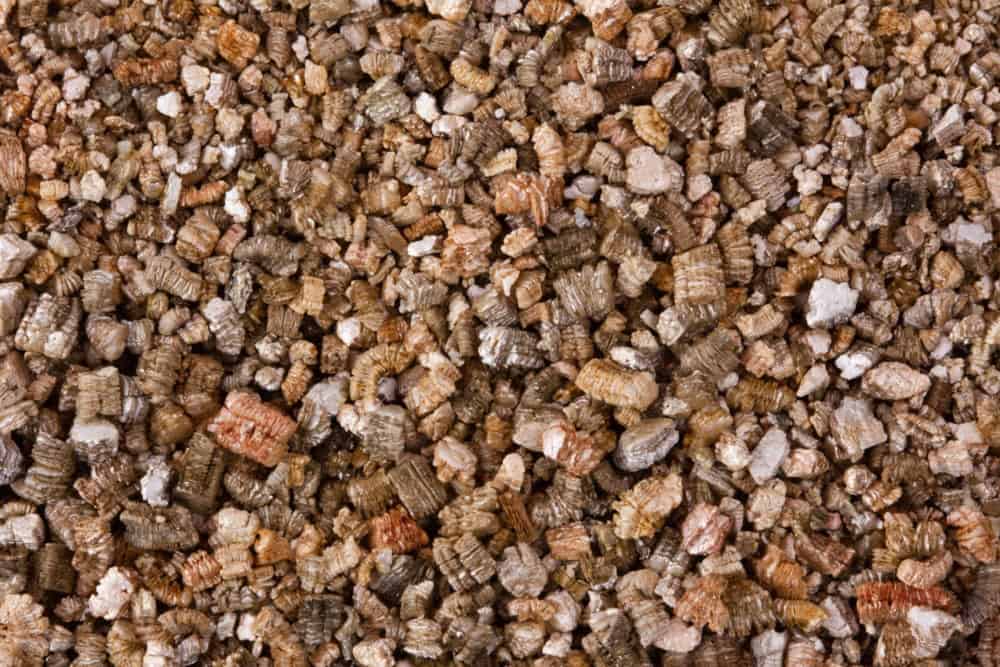In planting, using soil alone may not always be sufficient as each plant requires specific soil characteristics. One material that can help improve soil conditions is vermiculite. This article introduces vermiculite and explains its properties and benefits—essential reading for planting beginners!
What is Vermiculite?
Vermiculite is a natural mineral that appears as gray or light brown flakes with a layered and porous structure. It contains minerals such as magnesium, aluminum, and silicate. Vermiculite originates from the transformation of mica minerals. When exposed to high temperatures of 800-1000°C, it expands 15-20 times its original size, acquiring unique properties beneficial for agriculture.
What are the Special Properties of Vermiculite?
-
Lightweight
Vermiculite is very lightweight, making it easy to transport and use, particularly in large quantities or for hanging pots. -
Excellent Moisture and Air Retention
Its porous structure allows vermiculite to hold water effectively while maintaining air spaces, ensuring roots receive an optimal balance of water and air. -
Good Drainage
Despite its high water retention, vermiculite efficiently drains excess water, preventing waterlogging, which could lead to root rot. -
Sterile
The high heat used in vermiculite production ensures it is clean, free from pathogens and weeds, and safe for all types of plants. -
Sustainable Planting Material
Vermiculite is non-degradable and maintains its quality over time, making it a sustainable choice for agriculture.
Uses of Vermiculite
1. Mixing with Planting Soil
There are two common methods for using vermiculite with soil:
- Mixing vermiculite with general planting soil in a ratio of 1:3 or 1:4 (vermiculite:soil). This improves soil structure, making it looser, more porous, and better for drainage.
- Using vermiculite as a soil cover by sprinkling a thin layer over the soil surface. This helps retain surface moisture, reduces water evaporation, and prevents weed growth.
2. Growing Plants Without Soil (Hydroponics)
Besides mixing with soil, vermiculite can also be used for soilless cultivation. Add vermiculite to a planting container, water it thoroughly, then sow seeds or place seedlings on top. Water and fertilize as needed.
This method is ideal for hydroponics or planting in limited spaces, such as on a condominium balcony.

Benefits of Using Vermiculite
-
Prevents Root Rot
Vermiculite's excellent drainage reduces the risk of waterlogging, a primary cause of root rot in plants. -
Promotes Healthy Plant Growth
Mixing vermiculite into planting soil improves soil structure, supporting root development and plant growth. -
Enhances Nutrient Absorption
With its high cation exchange capacity, vermiculite helps plants absorb nutrients more efficiently. -
Suitable for a Wide Range of Plants
Vermiculite's versatile properties—moisture retention and drainage—make it suitable for plants ranging from those preferring dry soil to those needing high humidity. -
Saves Water and Fertilizer
Vermiculite improves soil's water and nutrient retention, reducing water and fertilizer use in the long term.
What Plants Benefit from Vermiculite Mixed Soil?
-
Plants Requiring Well-Drained Soil
Suitable for plants like cacti, succulents, and other drought-tolerant species. -
Plants Requiring High Moisture
Ideal for plants needing moderate to high humidity, such as ferns, peace lilies, and monsteras. -
Plants Needing Porous Soil Structure
Promotes good air circulation and root growth, suitable for most general plants.
Vermiculite-mixed soil is suitable for many plant types requiring well-drained, moisture-retentive, and porous soil structures. If you are looking for high-quality vermiculite, check out products at the online planting materials store on Chaiyo Farm's website or visit the physical store.

